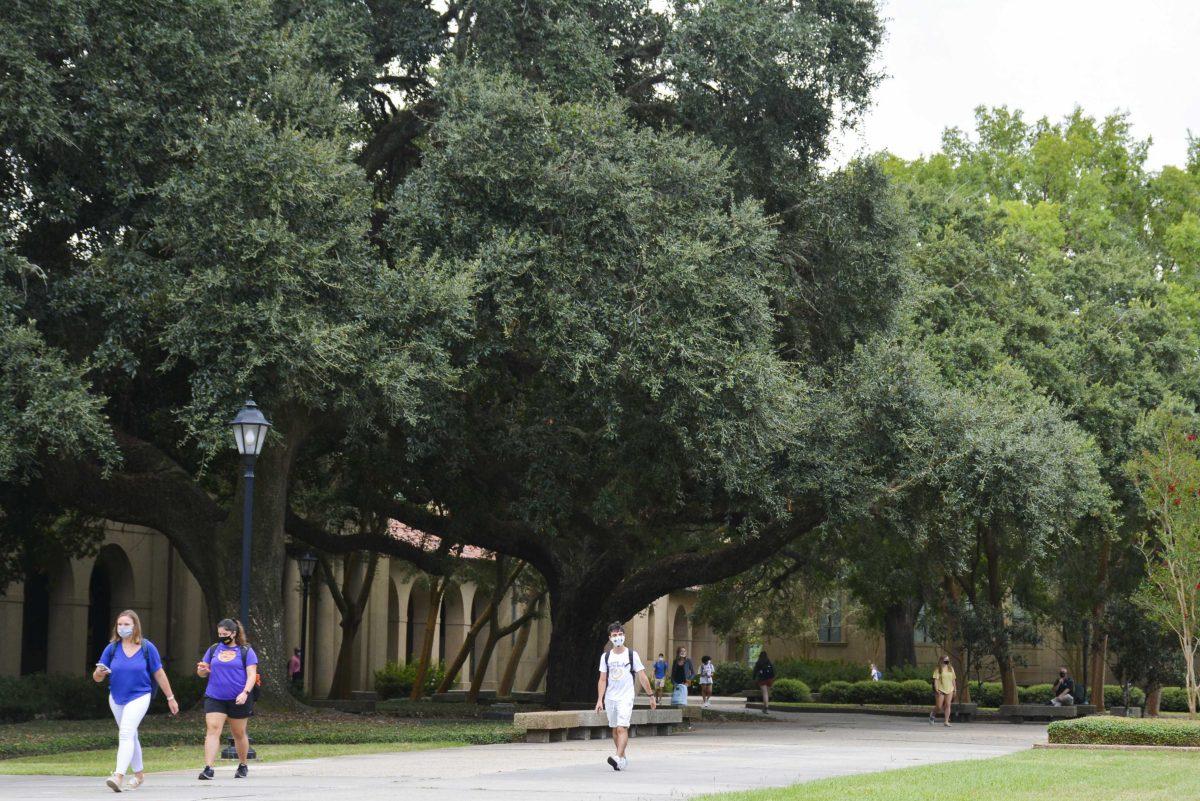With so much on the line, students deserve a leg up when it comes to higher ed.
As a student currently enrolled at Louisiana State University, I benefit from our state’s higher education system. But with the onset of the pandemic, the day-to-day life as a college student I was accustomed to has been turned upside down. Adjusting to virtual learning has left me wondering what our current situation could mean for the future of higher education.
One thing that this experience has highlighted is the critical role higher education will play for many who consider re-enrolling or continuing their postsecondary journey to make them competitive for jobs in a post-COVID economy, including me.
Over the past few months, I have thought a lot about the investment students commit to when we pursue a postsecondary degree. It’s an investment of our time, but also money. When I was deciding where to attend college, it would have been helpful to have resources to compare how schools across the state, and country, perform so I could have more adequately and easily gauged which schools presented a better match for my goals and objectives. It only seems fair that students, on the brink of committing years of their lives and thousands of dollars annually, should be able to determine the grades and other success metrics that the colleges and universities provide.
Information like enrollment numbers, graduation rates, post-graduate debt repayment, and employment outcomes would give students a preview of what kind of return on investment their degree might yield. I am fortunate enough to attend a university that is transparent about these metrics, but many students are not in the same boat. Attending college is supposed to put students one step ahead, but in some cases, students attend predatory schools who are only interested in our tuition checks. Those students, victimized by diploma mills, end up with nothing more than a mountain of debt and a degree that doesn’t help them in the long run.
According to the latest data from the U.S. Department of Education, almost half of our state’s schools fail to graduate more than half of the students who enrolled eight years prior. Put simply, that isn’t a passing grade. As students, we deserve a level of transparency and accountability when we entrust our time and money to a school.
Lawmakers in Washington agree and introduced the College Transparency Act, legislation that would go a long way toward ensuring that students, like myself, have access to key information before deciding what university, college, or technical program we might want to pursue. As an undergraduate enrolled in one of our state’s higher ed institutions, I appreciate the efforts being made to enact these student-centric changes to the postsecondary education system that we deserve.
As many of us consider continuing our postsecondary journey and others enter the workforce, it’s reassuring to know we have champions in Washington who understand the value of a quality education.
One thing that this experience has highlighted is the critical role higher education will play for many who consider re-enrolling or continuing their postsecondary journey to make them competitive for jobs in a post-COVID economy, including me.
Over the past few months, I have thought a lot about the investment students commit to when we pursue a postsecondary degree. It’s an investment of our time, but also money. When I was deciding where to attend college, it would have been helpful to have resources to compare how schools across the state, and country, perform so I could have more adequately and easily gauged which schools presented a better match for my goals and objectives. It only seems fair that students, on the brink of committing years of their lives and thousands of dollars annually, should be able to determine the grades and other success metrics that the colleges and universities provide.
Information like enrollment numbers, graduation rates, post-graduate debt repayment, and employment outcomes would give students a preview of what kind of return on investment their degree might yield. I am fortunate enough to attend a university that is transparent about these metrics, but many students are not in the same boat. Attending college is supposed to put students one step ahead, but in some cases, students attend predatory schools who are only interested in our tuition checks. Those students, victimized by diploma mills, end up with nothing more than a mountain of debt and a degree that doesn’t help them in the long run.
According to the latest data from the U.S. Department of Education, almost half of our state’s schools fail to graduate more than half of the students who enrolled eight years prior. Put simply, that isn’t a passing grade. As students, we deserve a level of transparency and accountability when we entrust our time and money to a school.
Lawmakers in Washington agree and introduced the College Transparency Act, legislation that would go a long way toward ensuring that students, like myself, have access to key information before deciding what university, college, or technical program we might want to pursue. As an undergraduate enrolled in one of our state’s higher ed institutions, I appreciate the efforts being made to enact these student-centric changes to the postsecondary education system that we deserve.
As many of us consider continuing our postsecondary journey and others enter the workforce, it’s reassuring to know we have champions in Washington who understand the value of a quality education.










